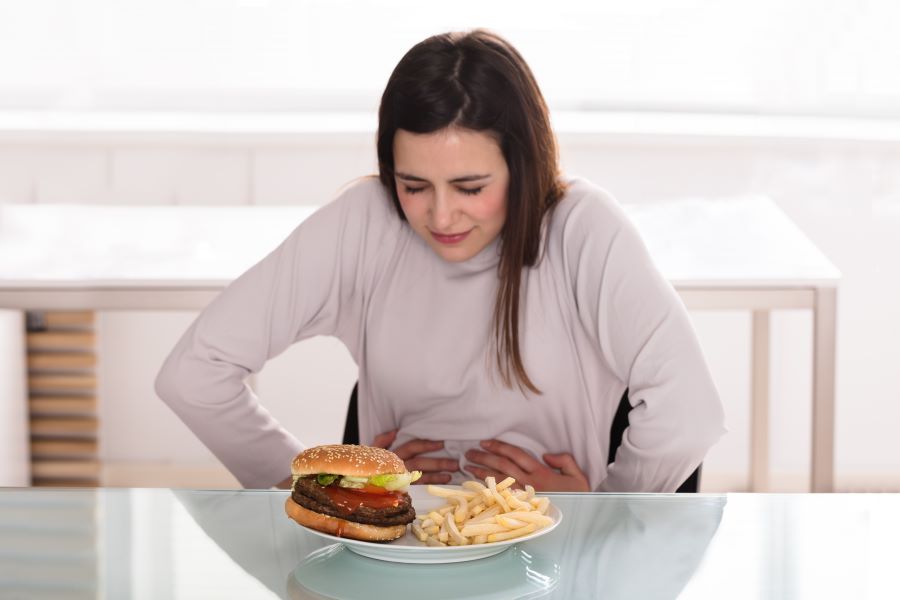7 Foods to Avoid During Pregnancy


During pregnancy, many women focus on their health and nutrition like never before, and rightly so: you want to feed your baby the very best nutrients possible! However, there are some foods you stay away from as they can carry an increased risk to both you and your developing baby. Here are the top seven foods you should avoid during pregnancy:
1. Soft cheeses made with unpasteurized milk—Examples of these cheeses include Brie, feta, or queso blanco. The concern is that these cheeses can harbor Listeria or E. coli. Listeria can cause listeriosis. Symptoms include fever, muscle aches, diarrhea, headaches, stiff neck, confusion, or in severe cases maternal death. Sometimes mothers can be infected but show no symptoms and still pass the bacteria to their unborn baby. In-utero listeria infection can lead to miscarriage, preterm delivery, infant death, mental retardation, paralysis, or seizures. These are severe complications that no mother wants to experience, yet an estimated one-third of all listeria infections occur in pregnant women, who are 20 times more likely to get listeriosis when compared to other healthy adults!
2. Fish that is high in mercury—Fish is a very important component of a pregnant woman’s diet, as it contains many healthy nutrients, good fats such as omega-3 fatty acids, and lots of nutrients that are essential for your developing baby’s brain. However, certain kinds of fish contain high levels of mercury and should be avoided, as mercury can affect your baby’s developing nervous system. These include shark, swordfish, king mackerel, and tilefish. Safe alternatives include shrimp, salmon (preferably wild), catfish, and albacore tuna. The tuna should be limited to six ounces a week while the other options are safe up to 12 ounces a week.
3. Raw or undercooked fish or shellfish—These foods can contain parasites and bacteria such as Vibrio. These can lead to foodborne illnesses that can predispose pregnant women to severe infections, preterm labor, or other concerning complications. Pregnant women are more susceptible to these illnesses thanks to a weakened immune system, so it is important to be more cautious during this time.
4. Unpasteurized juice, cider, or milk—These can contain E. coli, Campylobacter, Listeria, or Salmonella, which can all lead to foodborne illnesses.
5. Raw cookie dough or cake batter—These can contain Salmonella from the eggs included in the recipe, so don’t lick the spoon!
6. Raw or undercooked sprouts—E. coli and Salmonella can hide in alfalfa, clover, or radish.
7. store-made salads containing meat or fish—Listeria can grow even at refrigerator temperatures, and since you did not make this salad yourself you can’t assume good hygiene was used or know for sure how old it is. Make salads in your own home and be sure all meat and fish are cooked well and have been cleaned and stored appropriately.
Not all foods are off-limits in pregnancy! The following are safe to eat as long as certain precautions are taken:
Hot dogs and cold cuts—Reheat these to steaming (165 degrees) to destroy any Listeria bacteria.
Anything with eggs—Cook until yolks are firm or dishes containing eggs reach 160 degrees.
Fish, beef, chicken—Cook all fish to 145 degrees and meat to 145-160, depending on the type of meat. Chicken should be cooked to 165 degrees. Use good hand hygiene!
Smoked seafood—Avoid the refrigerated versions unless they were cooked to 165 degrees; otherwise, stick with the canned versions.
Reviewed by Dr. Jen Lincoln, November 2018
Sources:
- Foodsafety.gov: Checklist of foods to avoid during pregnancy.
Food and Drug Administration: Food safety for moms-to-be.
Powered by Bundoo®










































